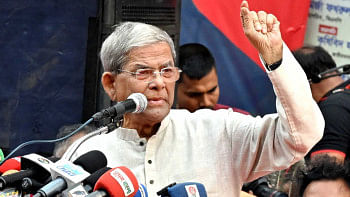What should be Bangladesh’s tax policy response to the pandemic?
Mobilising sufficient financing for implementing the 2030 Agenda for Sustainable Development is a major challenge on its own, but the global coronavirus pandemic has exacerbated it.
The pandemic underlines the need for a strong, resilient domestic financial system, which is stable, facilitate an inclusive economy and provide for public goods such as the universal health system.
Effective public revenue generation is of critical importance to financing the kind of system that is better able to deal with the pandemic.
Against the background, the National Board of Revenue (NBR) can prepare a five-year plan of taxation covering the following points:
COVID-19 TAX
A recent proposal for imposing COVID-19 tax on tobacco and luxury products deserves the attention of policymakers.
Research has shown that tobacco use is detrimental to public health and tobacco users are more vulnerable to COVID-19.
Research also shows that the government intervention in the form of reducing the four tiers of cigarettes into two, raising maximum retail prices and introducing a specific tax is projected to generate additional revenue of about Tk 4,100 crore to Tk 9,800 crore in a year.
TAX DISPUTE RESOLUTION
Dispute resolution is a key issue in taxation. In fiscal 2017-18, 6,231 tax cases were pending in different courts involving about Tk 17,039.41 crore, according to data from the NBR.
For resolving tax disputes, the NBR can take a two-pronged approach: (1) taking initiative to get the pending cases disposed of; and (2) bringing more cases under the alternative dispute resolution (ADR) mechanism.
This is likely to bring a huge chunk of money to the government exchequer. We may follow the South Africa model that disposes of more than 80 per cent tax cases through the ADR mechanism.
REALISING OUTSTANDING REVENUE
About Tk 38,639 crore is due to the different government bodies. The NBR can launch a vigorous drive to deal with the defaulters.
FINANCIAL INCLUSION
The government can generate additional revenue by bringing informal sectors into the formal one through financial inclusion and enhancing withholding taxes by linking different services with taxes.
COMBATING TAX AVOIDANCE AND EVASION
Tax avoidance and evasion are rampant in Bangladesh.
Some multinational corporations try to shift money to their headquarters through the transfer pricing mechanism.
The NBR should activate its Central Intelligence Cell (CIS) to address tax avoidance and evasion strategies that exploit gaps and mismatches in tax rules.
ADDRESSING TRADE-BASED MONEY LAUNDERING
According to the reports of Global Financial Integrity, a huge amount of money goes out of the country mainly through trade-based money laundering every year.
In a study, it is found that it happens primarily through import over-invoicing, which results in colossal revenue loss.
Since the data is available online, the NBR can detect the cases of money laundering by matching the bills of entry and shipping documents with the letters of credit opened and settled online.
Moreover, a system can be put in place by which the laundering of money is prevented.
The writer is a former chairman of the NBR and professor of Brac Institute of Governance and Development

 For all latest news, follow The Daily Star's Google News channel.
For all latest news, follow The Daily Star's Google News channel. 



Comments